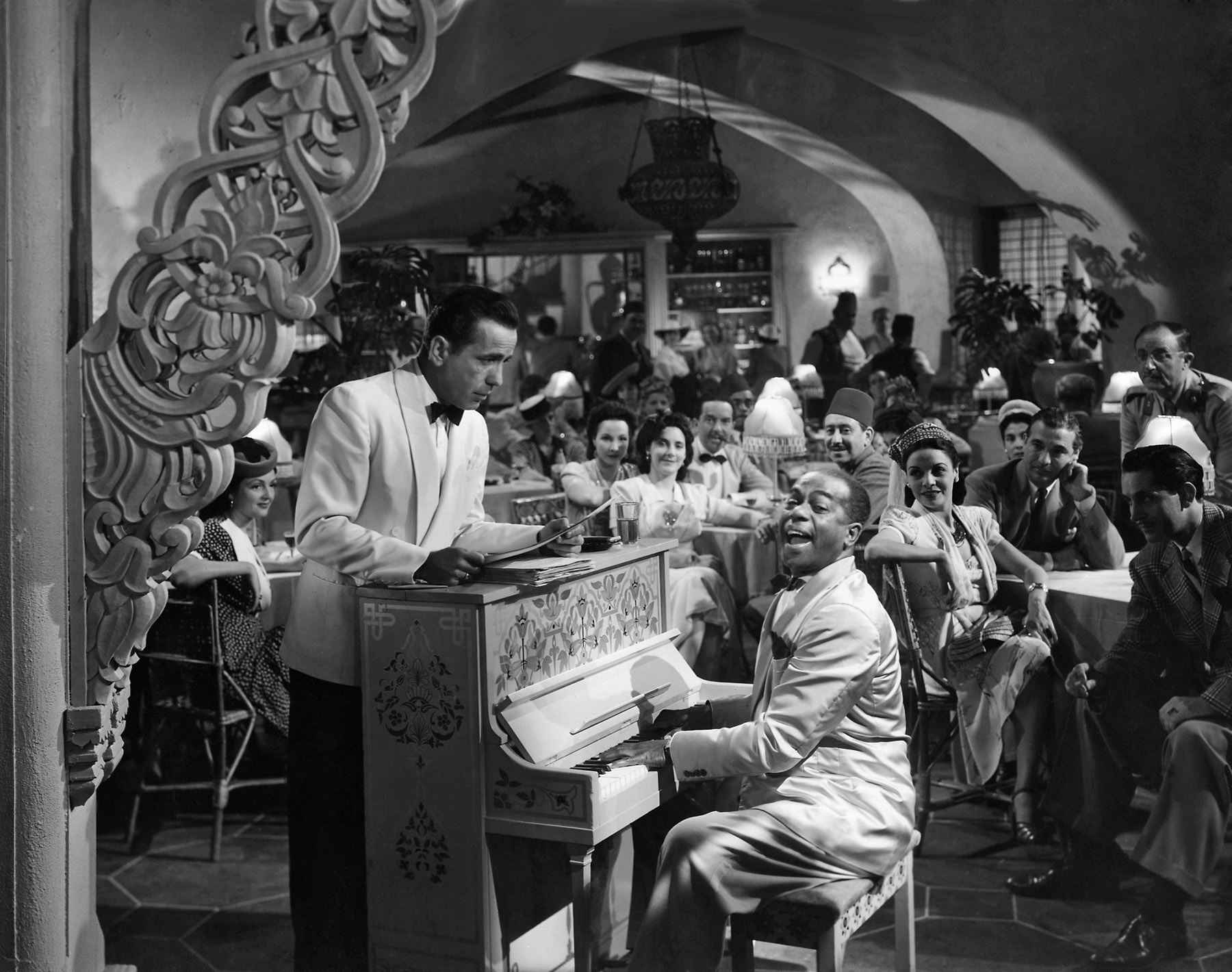Q. After watching the Criterion edition of Bergman’s “The Silence” (1963), I read your Great Movie review and was puzzled by one sentence: “The doorway between their rooms is the portal through which they stage their rivalry, and only Johan passes back and forth thoughtlessly.”
Considering that the sisters did, indeed, pass through the doorway several times — literally and figuratively — are we to read “thoughtlessly” as “without portent” or “innocently”? Although an innocent, Johan did wonder what was happening within the closed doors of Anna’s — and by extension, his — bedroom, most significantly when he happened upon “the lover” while retrieving a book.
Forty years later, the film’s bedroom and bathtub scene couldn’t even have been filmed in the United States, let alone shown here. Time marches backward.
Gary Dretzka, Los Angeles
A. I think the key word is indeed “thoughtlessly,” in the sense that Johan simply moves back and forth, and when each sister enters the other’s room, it is with premeditated purpose. That is one masterpiece.
Q. My 8-year-old son Andrew has taken an interest in my movie collection. We’ve been watching movies atypical for someone that young: “Rushmore,” “Spellbound” (the spelling bee documentary), “The Right Stuff,” “Tell No One” (with subtitles no less!) and this past Friday, a movie near and dear to you: “Dark City.”
It appears that kids can handle complex characters and story lines better than we think. Very rarely do I have to explain what was going on, and his comments indicate that he is getting it (during “Rushmore“: “Sometimes Max is not nice, but I like him”; on the ending of “Dark City,” “He knows all about her, but she doesn’t know about him!”)
What strikes me the most is how “natural” cinematic grammar is understood by children. No one has to sit down and explain things like cutaways, flashbacks, dream sequences, POV shots and the passage of time in films. How do they learn this stuff? Also, do you think the thematic material in the movies I listed is too much for 8-year-olds, or can I continue to brag and bore my friends?
Mike Spearns, St. Johns, Newfoundland
A. Start bragging. IMHO, kids up until about the age of 11 are more open to good movies than they will be again for some years, unless they fall prey to the deadening effect of peer pressure. A kid knows, as any adult does, that “Twilight” is a crashing bore. I suspect many teenagers like it because they have been ordered to by their peers.
Younger children instinctively love a Miyazaki animated film more than the meaningless action of films like “Monsters vs. Aliens” or “Kung Fu Panda.” They’re open to the magic. Later, some seem to need to be battered by noise and chaos.
I’ve never met a preschooler who did not respond well to silent comedy. A film critic friend of mine and his novelist wife raised their daughter on nothing but good films, and so she developed such good taste that she never has been able to stomach visual junk food.
As for understanding the language, the grammar of film seems to have evolved directly from the instincts of the first filmmakers. It requires no theory to understand the difference between a closeup and a long shot, or that a dream sequence is a dream sequence. A good movie contains all the instructions you need about how to watch it. This is true of the greatest films. Only junk like “Transformers: Revenge of the Fallen” requires an instruction manual.
Q. I was wondering if you have viewed Jack Shaheen’s documentary “Reel Bad Arabs,” and how you feel about the overwhelmingly negative Arab and Muslim stereotypes in Hollywood films — such as “Rules Of Engagement,” if you need a reference to what I am asking about.
Haney Noureldin, Gilberts, Ill.
A. Arabs seem to have become the Nazis du jour in certain filmmaking circles. That is particularly unfortunate because most are peaceful people who only want to get on with their lives as we all do. By demonizing a group on the basis of a few members, we are pushing them away with the same kind of prejudice that is such a regrettable part of American tradition. It is time for good people to meet in the middle.
Q. Your review of “Pirate Radio” stated that Radio Caroline didn’t play The Beatles. Wrong.
From mid-1963 to mid-1964, I was stationed at a tiny U.S. Navy base on the southeastern coast of Spain at a town called Cartagena. From midnight to 4 or 5 a.m., we were able to get Radio Caroline, and we heard all the British bands, definitely including the Beatles — in fact, we may have heard them there before folks back in the United States did. It was great. I don’t remember being aware of any hijinks on the air or anything special about the DJs; as I recall, it was pretty much wall-to-wall music. And to quote Kristofferson, “Buddy, that was good enough for me!” Caroline helped us pass many a miserable hour on the midnight-to-4 a.m. watch. Bless ’em.
Rich Coleman, Potomac, Md.
A. I worded that passage badly. The review incorporates a running commentary on Caroline’s streaming audio over iTunes, and while I was listening, it didn’t play any Beatles.
Q I was reading a review of the recent release of the “Casablanca” Ultimate Collector’s Edition on DVD, and the reviewer states that your commentary is amazing because you are so knowledgeable about everything surrounding this movie. A few days ago, I was reading something interesting about this movie and was wondering if you would be able to confirm or deny this rumor.
The International Jack Benny Fan Club claims on its Web site that, according to the “Casablanca” press book, Jack Benny has an uncredited cameo in “Casablanca.” My understanding from what they say on the site is that Jack was visiting the studio one day and Bogart invited him to be an extra in one of the scenes. Jack made a film at Warner Bros. in 1942, so it’s entirely possible that he could have been there.
Most of the people who’ve posted on the Web site for the Jack Benny fan club seem to think he’s a man in the background starting at seven minutes into the film. Sam is singing, and behind him is a table with several people sitting at it. The man most visible is wearing a uniform and smoking a cigarette. I agree that he resembles Jack, but I don’t think it’s him.
Are you familiar with this rumor? And if the rumor is true, would you happen to know where in the film he’s hiding?
Ethan J. Muse, Keene, Texas
A. It looks something like him. That’s all I can say. On this thread on a Benny fan site, it’s pointed out that the press book indeed makes such a claim, and Bogart appeared on Benny’s radio show at roughly the same time: http://j.mp/8NHSHQ
Q. I want to correct part of your “2012” review. You write, “Also on board are the humans chosen to survive, including all the characters who have not already been crushed, drowned or fallen into great crevices opening up in the earth. These include the heroic Jackson Curtis (John Cusack) and his estranged wife, Kate (Amanda Peet); President Wilson (Danny Glover); his chief science adviser, Adrian Helmsley (Chiwetel Ejiofor), and his chief of staff, Carl Anheuser (Oliver Platt).”
However, one of the emotionally impacting scenes is the phone call where President Wilson calls his daughter to tell her that he is not going to be getting on the plane that is heading to the arks. Just thought you might want to revise that, since he clearly does not get on the ark.
Joli M. McCarthy, West Chester, Pa.
A. Quite true. However, although my chronology might be off, I’m under the impression that by that point in the film, he had already been crushed, drowned or otherwise inconvenienced by a tsunami that dropped the aircraft carrier John F. Kennedy on the White House.












